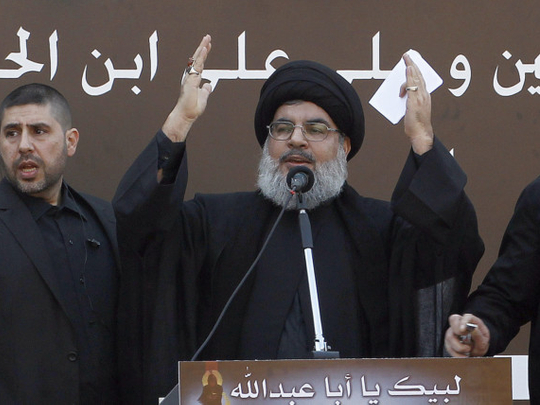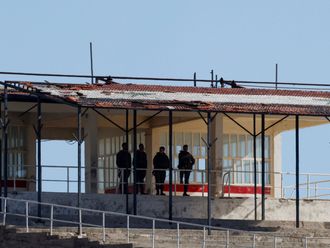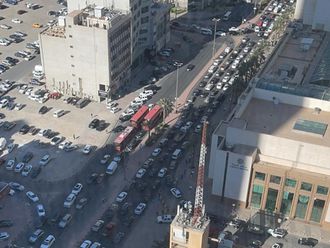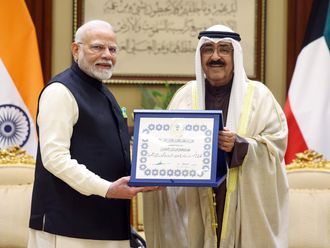
Beirut: On the eve of the Shiite commemoration of Ashura on Wednesday, Hezbollah chief Hassan Nasrallah reiterated that “Lebanon’s reality is the coexistence of the two parties and nobody can cancel the other, we can only seek common ground to draw the features of Lebanon’s future”.
Less than 24 hours later, however, Nasrallah hammered that the Party of God was attached “to the resistance, its power, its weapons and capabilities,” and that these were so “to maintain the security of our nation and our people”.
These declarations came a few days after unprecedented “threats” by the head of the Loyalty to the Resistance bloc in parliament, deputy Mohammad Raad, who declared: “We will cut off the hand of whoever wants to target the Lebanese or make Lebanon a consolation prize to anyone.”
Raad, one of Lebanon’s most skilful rhetoricians, did not mince his words. He set a new marker for the country, pre- and post-resistance Lebanon, with the old being nothing more that “a place where ‘Nightclubs’ prevailed,” which would presumably not exist in the nascent country in his vision.
Reactions were swift and instanteneous.
Deputy Boutros Harb, a potential candidate for the presidency with an unsurpassed command of the Arabic language, crossed the t’s and dotted the i’s. “Hezbollah confirmed that the Lebanese nation does not exist [in the party’s calculations] nor does the value of the Lebanese people and the opinion of others,” matter, he underlined.
Harb lamented that the party disregarded the “concept of conviviality with the other components of Lebanese society,” resorting to “threats, intimidation, incitement and disregard” to different views.
Without missing a beat, Harb emphasised that Hezbollah placed itself at the service of its “masters” at the expense of Lebanon and its people, and went to far as to “employ the sacrifices of its martyrs to seize power in Lebanon by turning its weapon to the inside”.
“Hezbollah wants to erase the identity of Lebanon, its mission and its civilisation,” he clarified, “by dominating it and deciding on behalf of its legitimate state institutions, but most importantly on behalf of its people.”
For his part, Kataeb Party Sami Gemayel accentuated how Nasrallah’s speech was sure to lead to internal conflicts, because the Hezbollah chief stressed the importance of regional developments to be far “more important than the existence of the Lebanese state” itself.
“Nasrallah clearly expressed in his speech that he is neither concerned in Lebanese affairs, nor in the concerns of the Lebanese people, their security, economy, and the conflicts that the country is facing,” concluded Gemayel.
He nevertheless extended an open invitation to Nasrallah “to sit together in order to discuss outstanding issues without any grudges,” presumably to negotiate decentralisation and, in time, a complete division of the country if the two sides failed to commit themselves to the nation.
In words that were carefully chosen, Gemayel urged Nasrallah not to impose on the bulk of the population a “condition” to support Hezbollah’s military engagement to back Damascus, and promised, in turn, not to impose standards backed by what he believed is the silent majority.
For many Lebanese, last week’s vituperative declarations implied that their country was just a detail and that the welfare of the Syrian and Iranian regimes came first, which rendered the idea of “national partnership” meaningless.
Inasmuch as any popular support for Hezbollah against Israeli occupation required internal cohesion, local observers wondered whether imposing a specific point of view, or even a religiously inspired version of virtue, solidified such backing.












